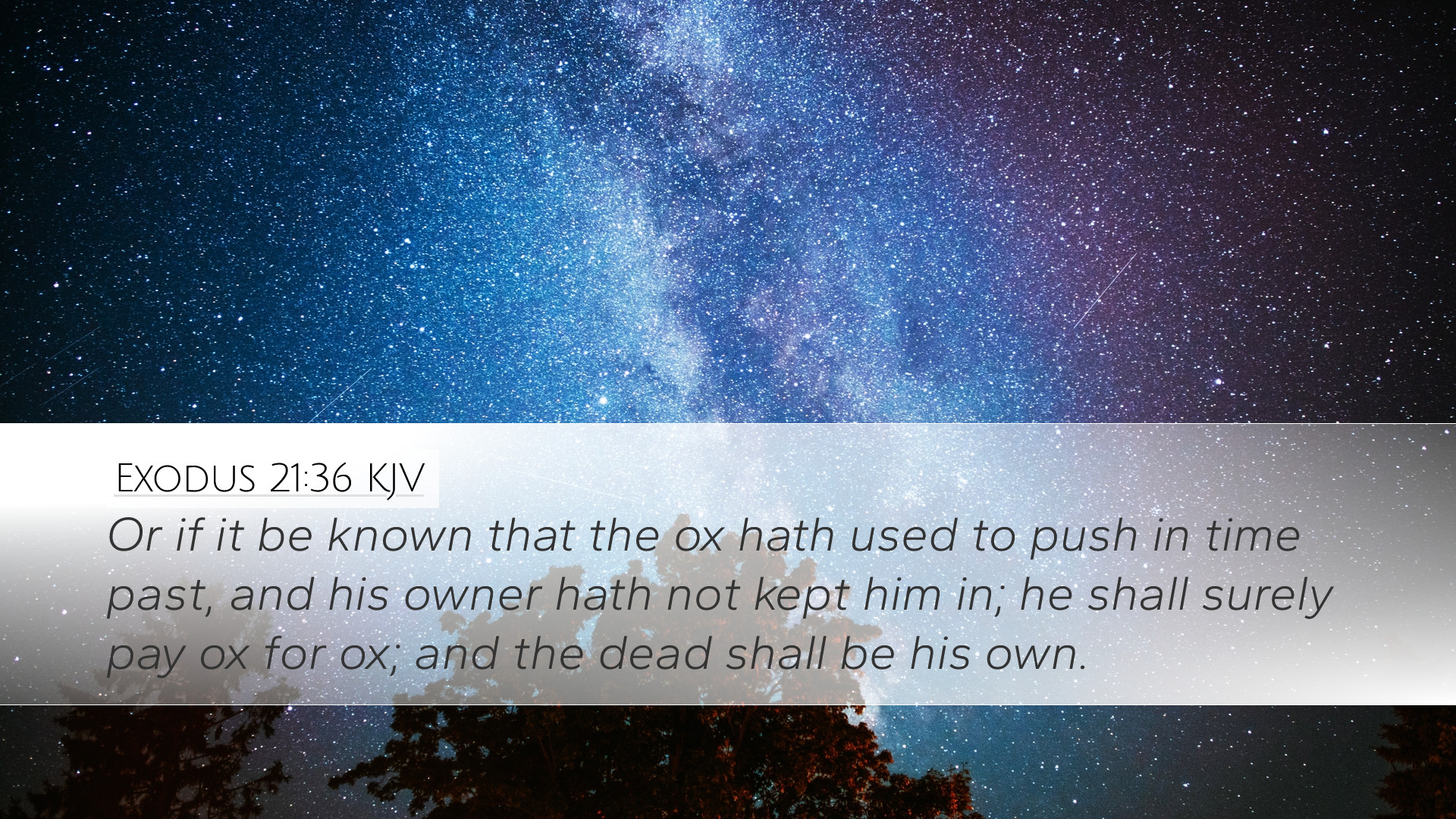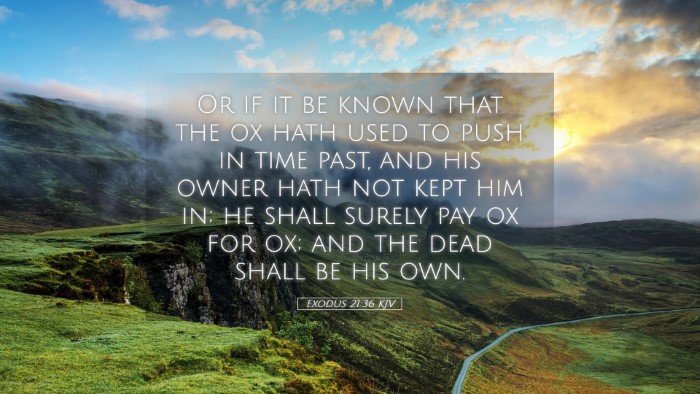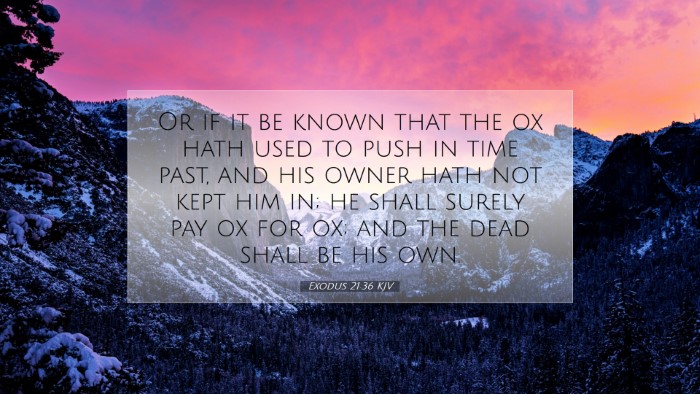Commentary on Exodus 21:36
Exodus 21:36 states: "If it is known that the ox has been in the habit of goring, and its owner has not kept it confined, he shall pay ox for ox, and the dead animal shall be his."
This verse is an integral part of the legal stipulations given to the Israelites, reflecting the principles of responsibility, accountability, and justice.
Contextual Background
The laws given in the Book of Exodus represent the covenantal relationship between God and His people. Chapter 21, in particular, deals with various aspects of interpersonal relationships and social justice, akin to what would eventually be termed civil law. This particular verse highlights the responsibilities of an owner regarding their property and its potential harm to others.
Theological Insights
-
Accountability:
This passage emphasizes the principle of accountability. The owner of the ox is held responsible for the actions of their animal. Failure to restrain a known dangerous animal reflects negligence, leading to consequences. This principle can be extrapolated to broader themes in the Christian life, where believers are called to exercise stewardship over their possessions and responsibilities.
-
Justice:
The demand for restitution in this scenario illustrates the notion of justice. It shows that actions have consequences, and God's law is intended to establish a fair and equitable society. Through these laws, God addresses both the welfare of individuals and the communal well-being of society.
-
Prevention:
The requirement to keep an ox that has gored confined places an emphasis on prevention over retribution. In spiritual terms, it reflects the foresight required in dealing with potential sin or harm, encouraging believers to take proactive steps in their moral conduct and community interactions.
Commentary Insights
-
Matthew Henry:
Henry highlights the nature of law as both punitive and preventative. He notes that the law serves to deter harmful behavior and underscores the importance of foreseeing the risks associated with one's property. Henry draws attention to the covenant relationship that entails a responsibility not just to oneself but to the community at large.
-
Albert Barnes:
Barnes focuses on the societal implications of such laws, suggesting that they preserve order and equity. He interprets the verse as reflecting a broader theological truth that God's justice demands compensation and reparation for wrongs done, an idea carried through to the New Testament's teachings.
-
Adam Clarke:
Clarke comments on the moral dimensions of animal care and the implications for human behavior. He notes that the permissible assurance of restitution signifies God's concern for justice and equity. Furthermore, he emphasizes the assuredness of divine oversight, suggesting that God administers justice in every circumstance.
Practical Applications for Today
-
Responsibility:
Today's readers should reflect on their responsibilities towards others, including how their actions may affect those around them. This verse urges self-examination concerning negligence and its consequences.
-
Community Awareness:
The passage applies to community living and awareness. Believers are called to a communal responsibility, ensuring that their actions contribute to the health and safety of their community. This encourages dialogue within the church regarding stewardship of personal and communal assets.
-
Moral Vigilance:
It serves as a reminder of the importance of moral vigilance. Just as the owner of a goring ox is called to ensure safety, Christians today must be proactive in addressing potential spiritual and ethical hazards within themselves and their community.
Conclusion
Exodus 21:36 encapsulates vital principles of accountability, justice, and moral responsibility. The theological insights extracted from it challenge believers to consider the implications of their conduct not only under the law but also in their spiritual lives. By examining these insights through the comments of respected theologians such as Matthew Henry, Albert Barnes, and Adam Clarke, we find a rich tapestry of meaning that can guide pastors, students, theologians, and scholars in their interpretations and applications of God’s Word.


